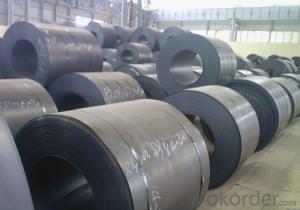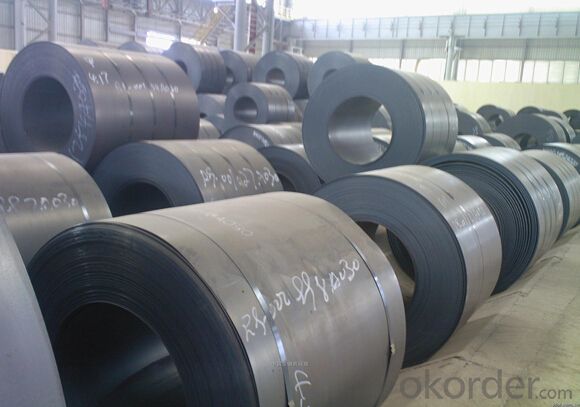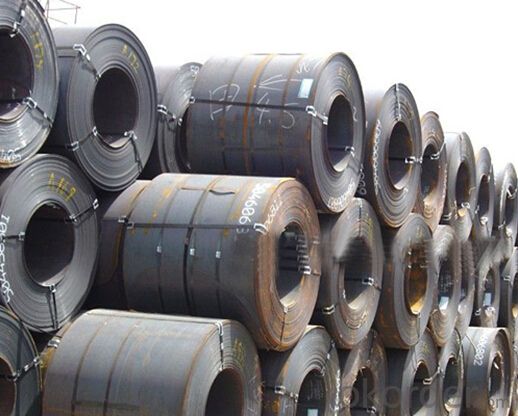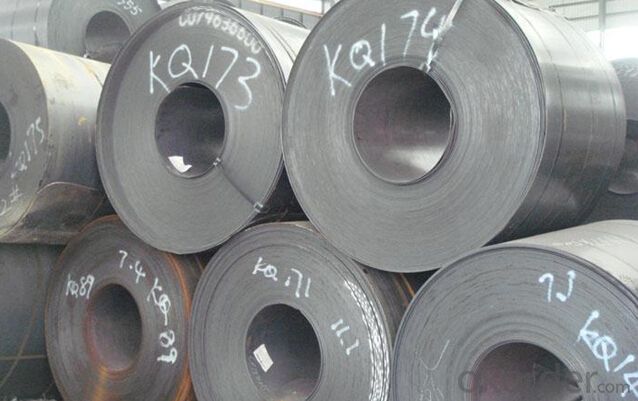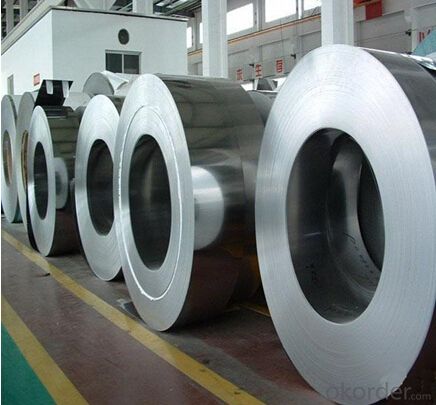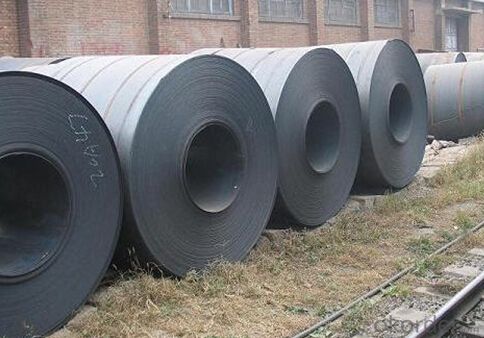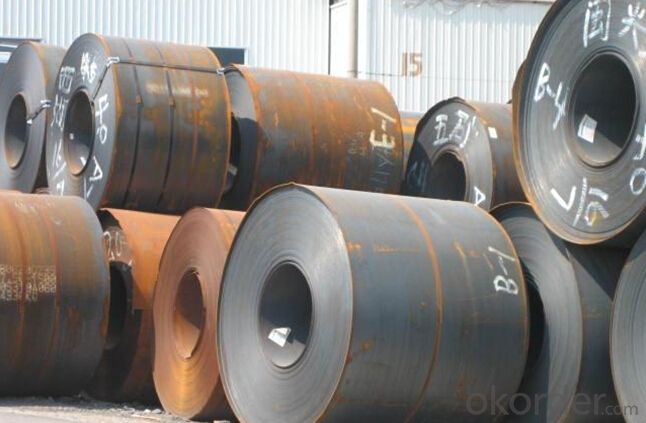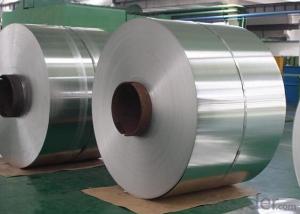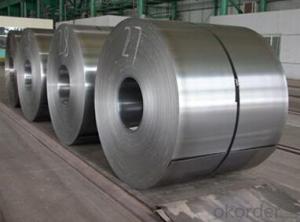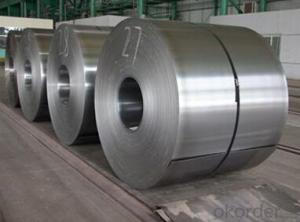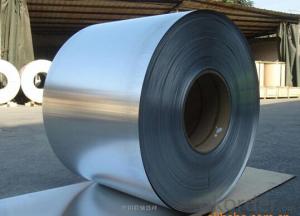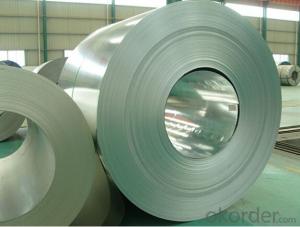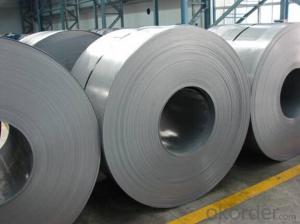Grade ASTM SS255-SS550 Galvanized Steel Coil
- Loading Port:
- Tianjin
- Payment Terms:
- TT OR LC
- Min Order Qty:
- 3 m.t.
- Supply Capability:
- 10000 m.t./month
OKorder Service Pledge
OKorder Financial Service
You Might Also Like
Specification
Grade ASTM SS255-SS550 Galvanized Steel Coil
Specification of Grade ASTM SS255-SS550 Galvanized Steel Coil
1. Galvanized Steel Coil
(1) Width: 600-1570mm
(2) Thickness: 0.13-5.0mm
(3) Grade: JIS G3302-SGCC-SGC570, SGCH (full hard-G550), SGHC-SGH540
EN10346-DX51D+Z, DX53D+Z, S250GD-S550GD
ASTM A653-CS-B, SS255-SS550
(4) Zinc Coating: Z40g/m2~Z500g/m2 (both side total coating thickness)
2. Galvalume Steel Coil
(1) Width: 600~1500mm
(2) Thickness: 0.15~2.30mm
(3) Grade: JIS G3321-SGLCC, SGLC400-570, (G550)
EN10346-DX51D+AZ, DX53D+AZ, S250-S550
ASTM A792M CS-B, SS255-SS550
(4) AZ Coating: AZ50~AZ185g/m2
3. Prepainted Galvanized Steel Coil (PPGI)
(1) Width: 600~1250mm
(2) Thickness: 0.19~1.50mm
(3) Grade: JIS G3312-CGCC, CGC340-570, (G550)
ASTM A755M CS-B, SS255-SS550
(4) Zinc Coating: Z40g/m2~Z500g/m2 (both side total coating thickness)
4. Prepainted Galvanized Steel Coil (PPGL)
(1) Width: 600~1250mm
(2) Thickness: 0.20~1.50mm
(3) Grade: JIS G3322-CGLCC, CGLC340-570, (G550)
ASTM A755M CS-B, SS255-SS550
(4) AZ Coating: AZ50~AZ185g/m2 (both side total coating thickness)
5. Cold Rolled Steel Coil (Soft) (for further information, pls click the product name)
(1) Width: 600~1570mm
(2) Thickness: 0.13~2.50mm
(3) Grade: JIS G3141-SPCC-SD, SPCD-SD, SPEC-SD
JIS G3135-SPFC 340/390/440
EN10130-DC01, DC03, DC04
SAE1006, SAE1008
ASTM A424-TypeⅡ
6. Cold Rolled Steel Coil (Full Hard) (for further information, pls click the product name)
(1) Width: 600~1570mm
(2) Thickness: 0.13~2.50mm
(3) Grade: JIS G3141-SPCC-1B, SPCC-1D
7. Hot Rolled Steel Coil
(1) Width: 1000~1524mm
(2) Thickness: 1.20~16.5mm, other thickness can be negotiation
(3) Grade: JIS G3101-SS400, JIS G3132-SPHT1/2/3, ASTM A36, Q195, Q235 etc.
Company Introduction of the Grade ASTM SS255-SS550 Galvanized Steel Coil
CNBM International Corporation is the most import and export platform of CNBM group(China National Building Material Group Corporation) ,which is a state-owned enterprise, ranked in 270th of Fortune Global 500 in 2015.
With its advantages, CNBM International are mainly concentrate on Cement, Glass, Iron and Steel, Ceramics industries and devotes herself for supplying high quality series of refractories as well as technical consultancies and logistics solution.
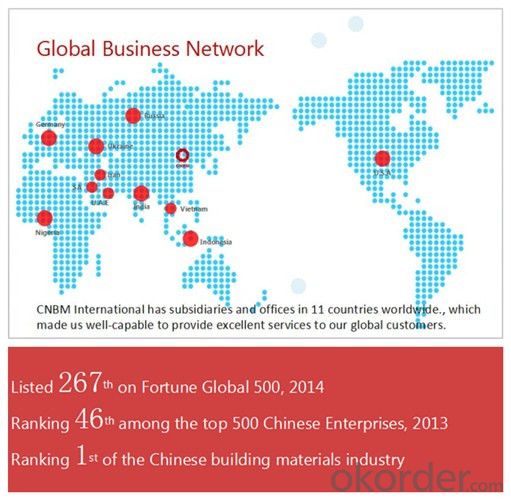
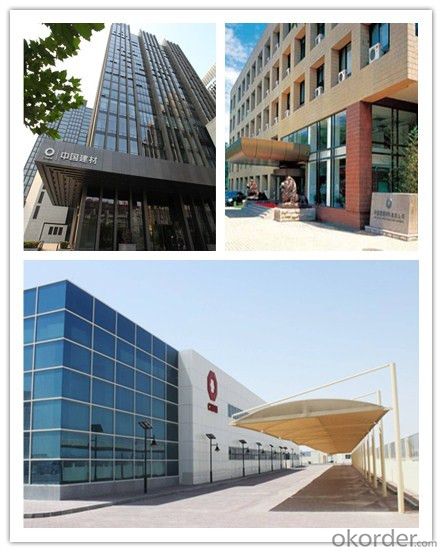
Packaging & Delivery of the Grade ASTM SS255-SS550 Galvanized Steel Coil
Packaging Detail | Sea worthy packing /as per customer's packing instruction |
Delivery Detail | 15 ~ 40 days after receiving the deposit |
Products Show:
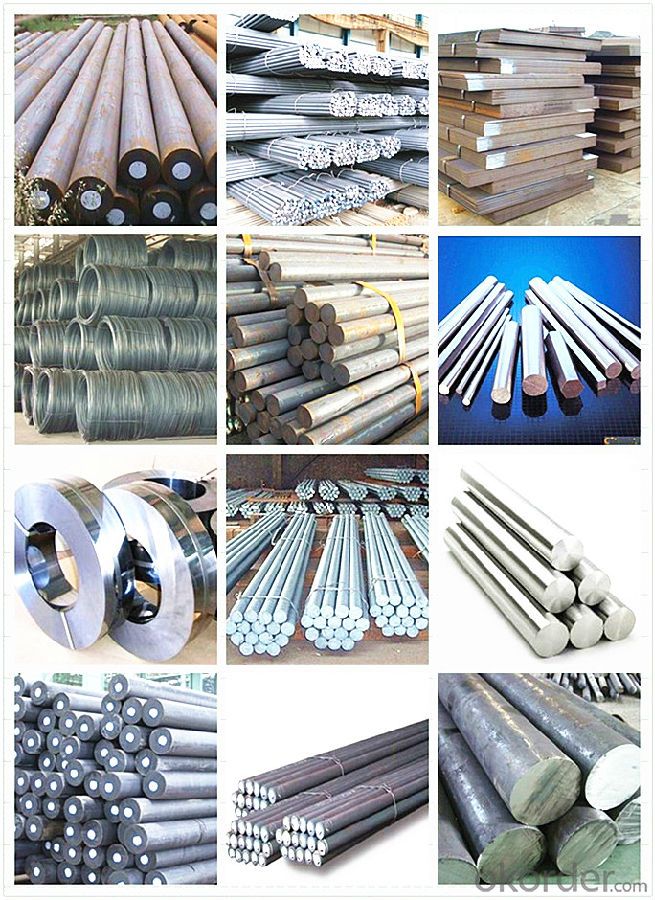
FAQ:
Are you a trading company or manufacturer? | Manufacturer |
What’s the MOQ? | 3 metric ton |
What’s your delivery time? | 15-35 days after downpayment received |
Do you Accept OEM service? | Yes |
what’s your delivery terms? | FOB/CFR/CIF |
What's the Payment Terms? | 30% as deposit,70% before shipment by T/T |
Western Union acceptable for small amount. | |
L/C acceptable for large amount. | |
Scrow ,Paybal,Alipay are also ok | |
Why choose us? | Chose happens because of quality, then price, We can give you both. Additionally, we can also offer professional products inquiry, products knowledge train (for agents), smooth goods delivery, excellent customer solution proposals. |
What's your available port of Shipment? | Main Port, China |
What’s your featured services? | Our service formula: good quality+ good price+ good service=customer's trust
|
Where are your Market? | Covering more than 160 countries in the world |
- Q: What are the different welding techniques used for special steel?
- There are several welding techniques used for special steel, including Tungsten Inert Gas (TIG) welding, Metal Inert Gas (MIG) welding, Shielded Metal Arc Welding (SMAW), and Flux-Cored Arc Welding (FCAW). Each technique has its own advantages and disadvantages, and the choice of technique depends on factors such as the type of special steel, the thickness of the material, and the desired outcome of the welding process. TIG welding is commonly used for high-quality welds on thin materials, while MIG welding is suitable for thicker materials and higher production rates. SMAW is a versatile technique, suitable for various steel types and thicknesses, and FCAW is often used for outdoor applications and on thick materials.
- Q: What are the applications of special steel in the railway industry?
- Special steel has a wide range of applications in the railway industry. It is commonly used in the manufacturing of rails, which need to be durable and able to withstand heavy loads and constant wear and tear. Special steel is also used in the construction of railway bridges and tunnels, as it offers high strength and resistance to corrosion. Additionally, special steel is used in the production of various railway components such as wheels, axles, and couplers, ensuring safety and reliability in train operation.
- Q: How does special steel perform in low-temperature applications?
- Special steel performs well in low-temperature applications due to its unique properties such as high strength, toughness, and resistance to brittleness. It retains its mechanical properties even at extremely cold temperatures, making it ideal for industries like aerospace, automotive, and energy where materials need to withstand challenging environments.
- Q: How does special steel perform in case hardening applications?
- In case hardening applications, the performance of special steel is outstanding. Case hardening, a heat treatment process, is used to increase the surface hardness of a material while maintaining its tough and ductile core. Special steel, also known as alloy steel, is specifically formulated to have enhanced properties like high strength, toughness, and wear resistance. When it comes to case hardening, special steel is the ideal choice due to its ability to form a hard outer layer while retaining its core properties. Typically, the process involves heating the steel to a specific temperature and then introducing a carbon-rich environment, such as through carburizing or carbonitriding. The carbon atoms diffuse into the steel's surface, creating a high-carbon layer called the case, which significantly increases hardness and wear resistance. Compared to other types of steel, special steel's high carbon content allows for deeper and more uniform case hardening. This results in improved durability, reduced friction, and enhanced resistance to wear, abrasion, and impact. Moreover, the tough core of special steel ensures that the material remains resistant to cracking or fracturing under high stress or impact loads. Furthermore, special steel offers excellent machinability, making it easy to process during case hardening applications. This makes it a preferred choice for various industries, including automotive, aerospace, tooling, and manufacturing, where components require both high surface hardness and structural integrity. Overall, special steel is highly regarded for its exceptional performance in case hardening applications. Its combination of high strength, toughness, wear resistance, and machinability makes it an excellent choice for producing durable and reliable components that can withstand demanding operating conditions.
- Q: What are the requirements for special steel used in high-pressure applications?
- The requirements for special steel used in high-pressure applications typically include high strength, excellent resistance to corrosion and oxidation, good weldability, and the ability to withstand extreme temperatures and pressures without deformation or failure. Additionally, the steel should have a high level of toughness to withstand impact and fatigue loads, as well as good dimensional stability to ensure proper sealing and performance in high-pressure environments.
- Q: How does special steel perform in terms of wear resistance?
- Special steel is known for its exceptional wear resistance, making it highly durable and long-lasting even under harsh conditions. It exhibits superior resistance to abrasion, erosion, and impact, allowing it to withstand heavy usage and minimize wear and tear. This characteristic makes special steel an excellent choice for applications where wear resistance is crucial, such as in the manufacturing of tools, machinery, and automotive components.
- Q: How does special steel contribute to the infrastructure development?
- Special steel contributes to infrastructure development in several ways. Firstly, its high strength and durability make it an ideal material for constructing buildings, bridges, and other critical infrastructure. Special steel can withstand heavy loads, extreme temperatures, and harsh weather conditions, ensuring the longevity and safety of these structures. Secondly, special steel is widely used in the manufacturing of machinery and equipment required for infrastructure development projects. From excavators and cranes to pipelines and power transmission systems, special steel provides the necessary strength, resistance to corrosion, and reliability needed for efficient and sustainable infrastructure development. Furthermore, special steel plays a crucial role in the transportation sector. It is utilized in the construction of railway tracks, road barriers, and vehicles, ensuring safe and reliable transportation networks. Special steel is also used in the energy sector for the production and distribution of electricity, as it is capable of withstanding high temperatures and pressure in power plants and transmission lines. In summary, special steel's strength, durability, and versatility make it an essential material for infrastructure development. Its contribution lies in the construction of robust structures, manufacturing of machinery and equipment, and the development of reliable transportation and energy systems, thereby facilitating the growth and progress of infrastructure worldwide.
- Q: How does the demand for special steel vary across different regions?
- The demand for special steel varies across different regions due to several factors such as industrial development, infrastructure projects, and manufacturing activities. Regions with robust manufacturing sectors and infrastructure development tend to have higher demand for special steel as it is used in various applications like automotive, construction, and machinery. Additionally, regions with a higher focus on technological advancements and innovation may also have a greater demand for special steel due to its unique properties and capabilities. However, regions with limited industrial activities or dependence on specific sectors may exhibit lower demand for special steel. Overall, the demand for special steel is influenced by the specific economic and industrial characteristics of each region.
- Q: What are the specific requirements for special steel used in the nuclear industry?
- To ensure the safety, durability, and reliability of special steel used in the nuclear industry, it must meet certain requirements. These requirements encompass the following: 1. Radiation Resistance: Special steel must exhibit high resistance to radiation in order to endure the intense levels present in nuclear reactors. This entails low neutron absorption and minimal degradation when subjected to irradiation. 2. Strength and Toughness: Given the extreme conditions in which nuclear reactors operate, special steel must possess exceptional strength and toughness to prevent structural failure under high temperatures and pressure. 3. Corrosion Resistance: Steel employed in nuclear applications must have a high resistance to corrosion, as exposure to corrosive environments can compromise the integrity of reactor components. This necessitates low susceptibility to stress corrosion cracking, intergranular corrosion, and pitting corrosion. 4. Impurity Content: Special steel must have a low impurity content to mitigate the risk of radioactive contamination. Impurities within the steel can activate and release radioactive particles, posing a significant safety hazard. 5. Thermal Stability: The steel must maintain its mechanical properties even under elevated temperatures, displaying excellent thermal stability. This ensures reliability and expected performance during prolonged exposure to high heat. 6. Non-Magnetic Properties: Certain nuclear reactor components require non-magnetic materials to prevent interference with sensitive instruments and equipment. Special steel used in these applications must possess non-magnetic properties to meet this requirement. 7. Regulatory Compliance: Special steel used in the nuclear industry must adhere to specific regulatory standards and certifications to confirm its suitability for use in nuclear facilities. These standards may vary by country or region, but generally involve rigorous quality control, testing, and inspection procedures. Compliance with these particular requirements is vital for maintaining the safety and integrity of nuclear reactors. By meeting these standards, special steel can withstand the harsh conditions and potential hazards associated with nuclear power generation.
- Q: What are the applications of high-strength low-alloy (HSLA) steel?
- High-strength low-alloy (HSLA) steel has various applications in different industries. It is commonly used in the automotive industry for manufacturing lightweight and fuel-efficient vehicles. HSLA steel is also utilized in construction for building structures that require high strength and durability. Additionally, it finds applications in the manufacturing of heavy machinery and equipment, as well as in the production of pipelines and offshore platforms in the oil and gas industry.
Send your message to us
Grade ASTM SS255-SS550 Galvanized Steel Coil
- Loading Port:
- Tianjin
- Payment Terms:
- TT OR LC
- Min Order Qty:
- 3 m.t.
- Supply Capability:
- 10000 m.t./month
OKorder Service Pledge
OKorder Financial Service
Similar products
Hot products
Hot Searches
Related keywords
